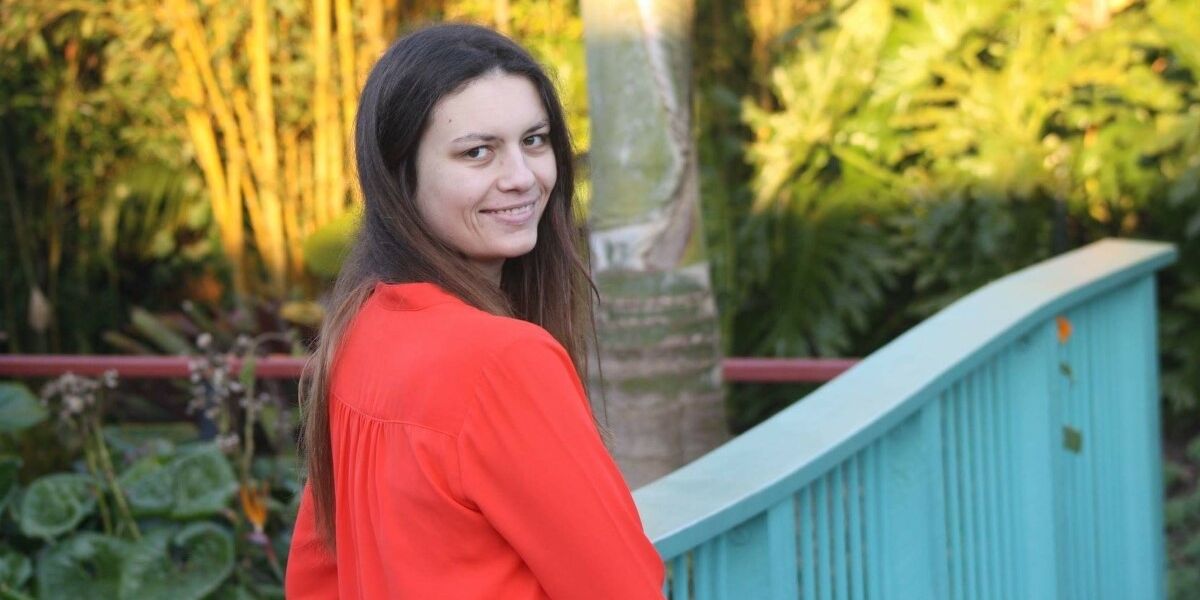Portia Johnson works at Braemar Hospital as a General Assistant. She hasn’t let her disability hold her back, winning bronze at the Special Olympics World Games and advocating for others, but one of her toughest challenges has been getting a job.
When Portia was in her final year at Hillcrest High School, she had her heart set on getting a job, being independent and being selected for the Special Olympics swim team at the World Games. But first, she wanted to level things up for her classmates in the Independent Living Centre (ILC).
Portia’s public speaking debut was an emotive and well-received speech delivered to a hushed final assembly.
“I wanted the school to better understand disabled people, so I decided to do a speech about it,” says Portia.
“I told them that the kids at the ILC are just like everyone else, but we have difficulties, and we need to be understood. You could have heard a pin drop.”
The school recorded her speech and shared it with Year 9 students the following year.
Portia lives with a mild form of Cri-du-Chat syndrome, a rare genetic condition, the result of a deletion in her fifth chromosome. Symptoms vary greatly and for Portia, this means she can have learning difficulties and processing delays.
Since that speech, 30-year-old Portia has never stopped championing others with a disability, and she remembers too well how hard it was to get her first job.
“When I left school, I thought next year is going to be my year when I get a job, when everything else happens after you leave school,” says Portia.
“I tried really hard, and my family was always there to support me, but I had to go to a day service where people with disabilities go when they can’t get a job. I felt like I was back at school and back in the disabled box. I didn’t want to stay there and be reminded I have a disability.”
She says her parents have always tried to help, but they now live further away. The support of Selwyn Cook, a work broker, has been invaluable for Portia in getting her roles.
Portia is a valued member of the Braemar Hospital kitchen team, she lives away from home and like others her age, her smart phone is always close by and she enjoys her freedom. Before her hospital role, Portia held a similar job at Stuff for seven years.
“I had a job at a pool, teaching swimming to kids which I loved, but it was for a short time. After a medical test, I got a phone call. This person found out I had been in the Special Olympics and they were concerned about my disability. They had read online about the worst symptoms of Cri-du-Chat,” says Portia.
“People can’t talk. People can’t walk. People can’t do many things with it. But there are different levels of disability. They were worried I could not manage. I felt as though I didn’t have a chance.”
Portia has some advice for employers and colleagues.
“People with disabilities are people. Don’t put us in a box, we just need more flexibility.”
Cri-du-chat syndrome translates from French to “cry of the cat”. When Portia was a baby, she says she “cried like a kitten”.
“There’s a funny story my mum tells people from when I was a child. When Mum and my uncle took me to get my injections, my uncle, who was in the waiting room laughed out loud because the nurse said, “I can hear a cat, is there a cat stuck somewhere?” But my uncle knew it was me. I had a second injection and the nurse made my uncle laugh again when she said, “There’s that cat again!”
“But it was just me”.
Portia says she hopes she can do more in the future than cleaning and admin support, but for now she is supported at work and part of a team. Recently she has done some public speaking at a local Scouts event, and she has no plans for a medical career.
“I don’t know. I can’t be a nurse or anything. I won’t go down the medical field because I’m actually scared of blood.”
Braemar Hospital General Manager People and Safety Anna King says, “Our lives are all the better for having Portia as part of our team – she’s inspiring, and we’re very proud of her commitment and dedication to her work with us, and to all of her activities outside of work”.
Braemar Hospital is committed to equity and equality, and is the first and only private hospital in New Zealand to become a Living Wage Employer.
Watch the YouTube video Portia wants a job, which follows Portia as she navigated the ups and downs of searching for her first job.
Find out more about support for employees and employers.
Get occasional news and updates from Braemar Hospital and Braemar Charitable Trust. Sign up here.

